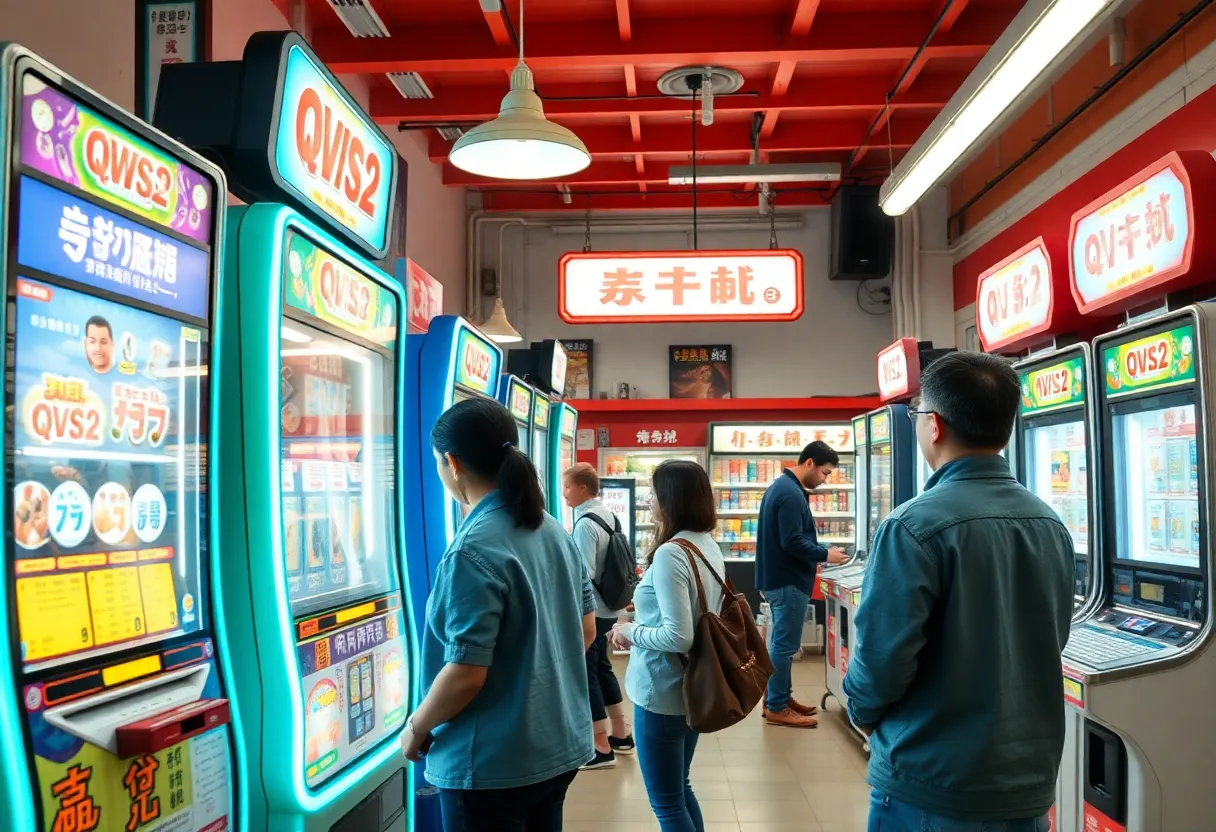

A local convenience store's gaming area showcases popular QVS2 skill games following the recent court ruling in Virginia.
A recent court ruling in Hanover County has favored small business owners operating QVS2 skill games, dismissing charges against a convenience store owner. This decision highlights the need for clearer regulations in Virginia’s skill gaming industry and may reshape future laws governing these games. The ruling is celebrated as a victory for local business operators amid ongoing debates over skill gaming legislation.
A landmark ruling in Hanover County, Virginia, has emerged as a critical victory for small business owners who operate Queen of Virginia Skill 2 (QVS2) games. The ruling, issued by Judge Hugh Campbell in the General District Court, has significant implications for the future of skill gaming in the state.
The legal drama began when David Bogese, a convenience store owner in Hanover County, was charged with possessing an illegal gambling device under Virginia Code § 18.2-331. Bogese’s store featured four QVS2 skill games, which had become popular among his customers. The prosecution argued that these machines were illegal, while Bogese’s defense maintained that they were compliant with Virginia law.
Key to the defense was the assertion that, under the law, an illegal gambling machine must require the insertion of some sort of object—be it coin, currency, or a ticket—to play. The QVS2 games, however, operated on a different premise. They did not necessitate any monetary or non-monetary objects for gameplay.
After careful consideration, Judge Campbell sided with the defense, dismissing all charges against Bogese. The court noted that the law governing skill games was exceedingly ambiguous, and more importantly, it acknowledged a deficiency in the current regulations. The ruling serves as a clarion call for clearer laws and better-defined parameters surrounding skill gaming in Virginia.
The ruling has been heralded as a significant win for small businesses, particularly those in the convenience store sector that rely on QVS2 skill games to bolster their income. State Senator William M. Stanley, Jr. emphasized that the ruling counters attempts by casino interests to monopolize the gaming market and eliminate local operators. Senator Stanley also pointed out the necessity for more organized regulations and taxation frameworks for the skill gaming industry.
Pace-O-Matic introduced the QVS2 technology in August 2024, aiming to support local businesses and provide supplemental revenue during challenging economic conditions. Before launching, the company consulted with an array of legal experts, including former Attorneys General from both political parties, to ensure compliance with existing Virginia statutes.
The landscape for skill games in Virginia has gone through a tumultuous evolution. The laws shifted dramatically in 2020, banning skill games due to concerns about their influence on the growing casino market. However, amidst the COVID-19 pandemic, a temporary stay was granted to allow these games to operate for one year, providing critical financial support for struggling businesses.
In 2021, the Virginia Alcoholic Beverage Control Authority ceased its enforcement efforts regarding skill games, further impacting the operational landscape. Yet, in late 2023, the Supreme Court of Virginia reinstated a ban on these machines, casting doubt once again over the prospects for local business operators.
Despite ongoing discussions surrounding potential regulations, taxation, and oversight of skill games, proposed legislation has faced vetoes and resistance from the state governor. The latest court ruling not only bolsters the existing businesses involved but may also reshape the future regulatory framework, highlighting the need for transparency and clarity in the law.
The ruling embodies the legal principle of rule of lenity, which favors defendants in cases where the law is unclear. As the state continues to navigate the complex intersection of small businesses and gaming laws, this pivotal ruling is likely to influence legislative conversations moving forward.
The QVS2 machines have become integral for many small business owners to maintain their income during economic uncertainty. As awareness of this ruling spreads, both the business community and state legislators will undoubtedly feel its impact.
Virginia Tech’s Emma Lemley Achieves Perfect Game in Softball
News Summary North Carolina and South Carolina face multiple wildfires, leading to evacuations and a…
News Summary Columbia, South Carolina, is under a winter weather advisory as forecasts predict a…
News Summary Authorities in South Carolina have charged six individuals in connection with the fatal…
News Summary Francis Injury Car & Truck Accident Lawyers achieved a significant legal victory in…
News Summary Traffic fatalities in California show a promising decline, with reports indicating a decrease…
News Summary The POWER List highlights Missouri's top personal injury attorneys, emphasizing their achievements in…